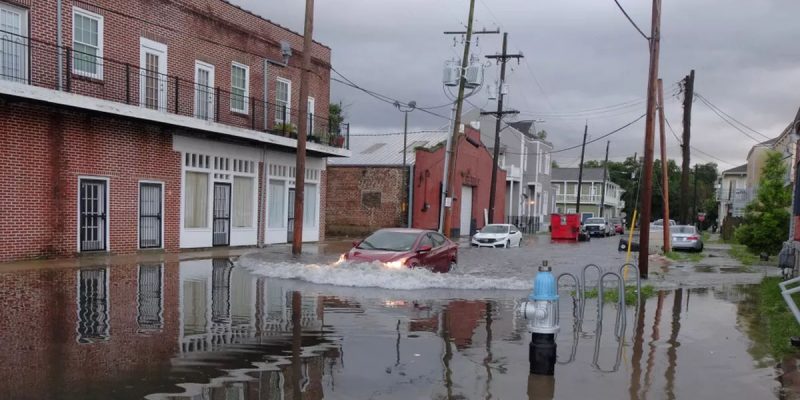Countless issues receive less attention than they deserve in Washington. With all the showmanship and partisan bickering around hot-button topics, it’s easy for the most pressing concerns to get lost in the fold. With extreme weather events like flooding becoming more common, lawmakers cannot allow flood insurance to become one of those lost issues. For many Americans, especially in Louisiana, affordable flood insurance is a financial necessity that could become inaccessible for hundreds of thousands of people over the next decade.
Louisianans understand the economic catastrophe that can come with floods. Just look back to August 2016, when flooding cost our state nearly $590 million in structural damages for businesses, along with $3.8 billion in residential property damages. With these kinds of staggering costs, flooding can devastate the finances of families and entire regions.
The National Flood Insurance Program (NFIP) was created in 1968 to help address this issue and mitigate the economic impacts of severe floods by opening up the lifeline of flood insurance for businesses, property owners, and renters. The program has since become a vital source of support for many, with over 5 million NFIP policies in force throughout over 22,600 communities across the nation. The program is set to expire on September 30, 2023, however, which could soon send shockwaves throughout the country. The clock is ticking for congressional reauthorization.
Senator Bill Cassidy is leading the charge to make sure this reauthorization makes it over the finish line. Acknowledging the costs Louisiana has faced in the past, Senator Cassidy is working on a bipartisan and bicameral basis to advance the National Flood Insurance Program Reauthorization (NFIP-RE) Act of 2023. Introduced with Senator Bob Menendez (D-NJ) and Representatives Clay Higgins (R-LA-03) and Frank Pallone (D-NJ-06), the legislation would reauthorize the NFIP for the next five years and avoid the uncertainty that its lapse would cause. For instance, just imagine if this program had expired before the recent flooding that struck Vermont—around 90 percent of Vermont communities participate in the NFIP.
This legislation also addresses the other clear reality of the NFIP, which is that the program is desperate need of reform. The Congressional Budget Office (CBO) estimates that 900,000 people could drop out of the program because of a new rating methodology known as Risk Rating 2.0, which is making flood insurance unaffordable for many.
Advertisement
Louisianans are especially vulnerable to flood insurance rate hikes caused by Risk Rating 2.0, with hikes threatening nearly 80 percent of policyholders in the state. The effects could be far-reaching, even driving down home values in our state to make up for the increased cost of high flood premiums. With the continued pressures of inflation, many families cannot afford these kinds of rate hikes on top of their everyday expenses.
The NFIP-RE Act of 2023 would cap annual rate increases at 9 percent, cutting the current rate increase cap in half. The bill would provide means-tested vouchers for low-income families that still have trouble affording coverage. It would also empower policyholders seeking appeal or litigation by reforming the claims process and would ensure that the Federal Emergency Management Agency (FEMA) meets their payment obligations quickly and fairly.
The effort Senator Cassidy is leading deserves recognition in our state and increased support in Congress. It would be a national disgrace to allow politics to get in the way of common-sense action on an issue like flood insurance, and our coastal communities would especially bear the cost of inaction. Extreme weather events don’t pick and choose targets based on political party. This is an issue we must address collectively as a nation.
Joseph Richard
former member
Republican State Central Committee
Advertisement
Advertisement

